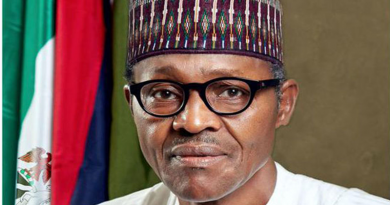Why Are Markets Falling, and Are We Heading for Global Recession ?
Financial markets have been nervously eyeing the US Federal Reserve as it prepares to raise interest rates for the fourth time this year on Wednesday, with big investors fearing that higher borrowing costs could damage the global economy.
The US economy is coming to the tail end of the second longest period of unbroken economic expansion in history, with a late boost from Donald Trump’s tax cuts this year that will gradually fade into 2019. The fear is that further rate hikes could act as a brake on growth rather than allowing for a more natural slowdown.
Added into the mix is the risk that Trump’s trade war with China could escalate with damaging consequences for the world economy.
Is there a chance that the Fed might scrap its planned rate rise?
The Fed is highly unlikely to delay after several heavy hints in recent months that it is prepared to lift interest rates by 0.25% from the current level of 2%.
Trump has warned the central bank against raising the cost of borrowing any further, using repeat posts on Twitter to intervene.
As the Fed met on Tuesday to discuss rates ahead of its decision on Wednesday, the president tweeted : “I hope the people over at the Fed will read today’s Wall Street Journal Editorial before they make yet another mistake. Also, don’t let the market become any more illiquid than it already is. Stop with the 50 B’s. Feel the market, don’t just go by meaningless numbers. Good luck!”
Markets could be soothed by softer language from the Fed if it chooses to downplay future rate hikes next year.
Are we heading for a global recession?
While the risk of a full-blown international recession next year with parallels to the 2008 financial crisis remain remote, the International Monetary Fund has warned that the storm clouds are gathering for the world economy in 2019.
Global growth is forecast to plateau, while some major nations including the US and China are on track to see slower rates of growth. There are risks on the horizon from rising protectionism as the US imposes import tariffs on goods, as well as the rise of populist politicians in other countries.
Related: Bubble, Meet Pin; It’s Just the Beginning of the Downslide
Public and private debt around the world has also hit a record high, far surpassing the bubble built up ahead of the financial crisis, which could trigger a damaging financial crash if not handled with care.
What are the other flashpoints to look out for in 2019?
Besides the risks from Brexit, the US-China trade war and the Fed aggressively hiking rates, several other risks linger on the sidelines for the world economy.
The rekindling of the budget dispute between Italy and the EU could trigger renewed turbulence in the eurozone, as could sweeping victories for populist parties at the EU parliamentary elections in May.
Geopolitical risks could also resurface, including an escalation of tensions in the middle east. Oil prices have had a rollercoaster couple of years, so a surge or sudden drop in the price of crude could pose problems for the world economy.
By Guardian Web via Iris.xyz
SOURCE: YAHOO FINANCE




